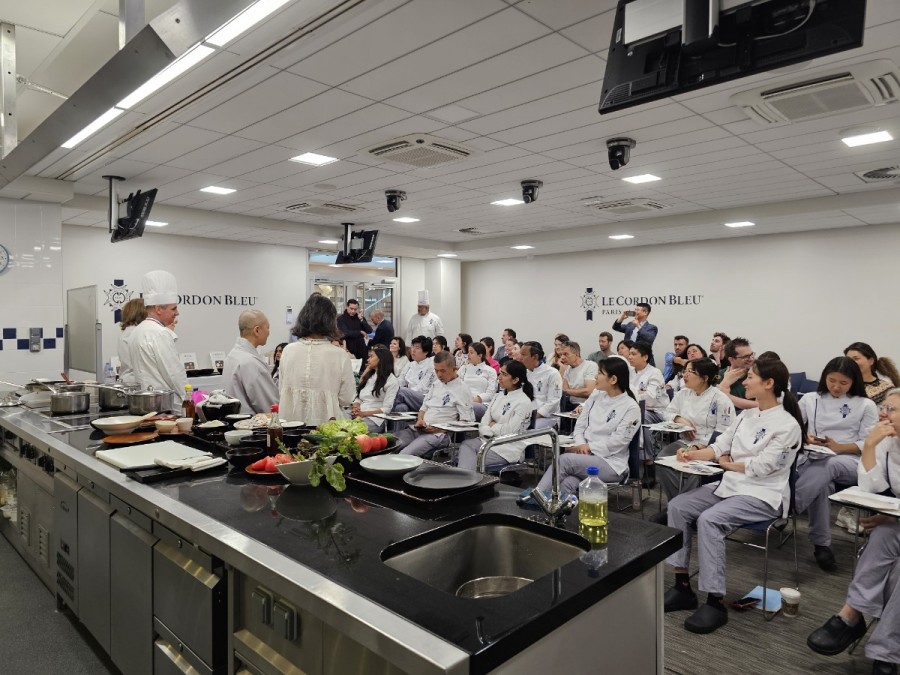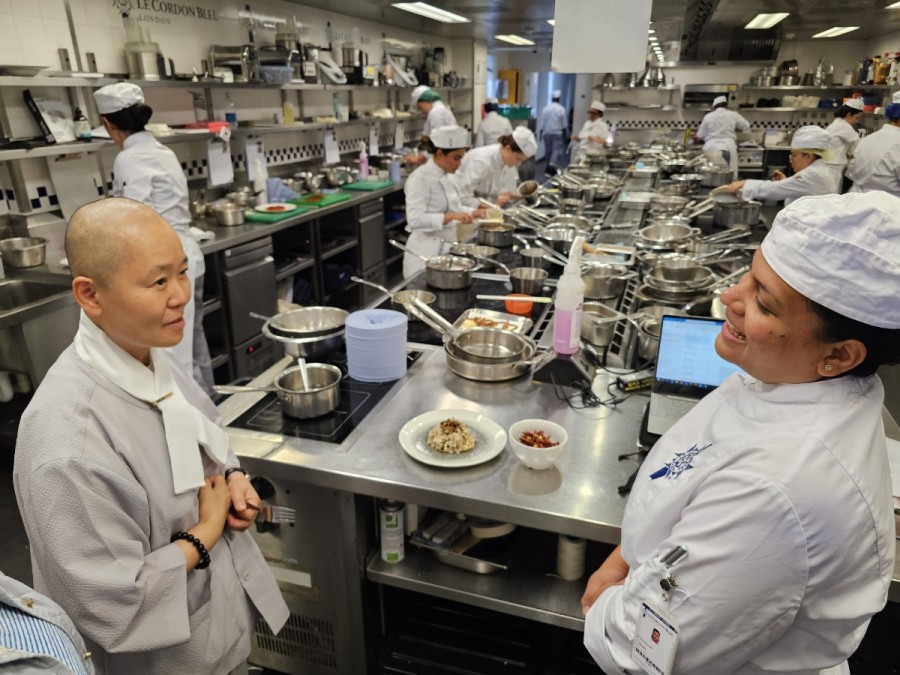English | A Feast of Temple Food Spread Across London, Paris, and Ottawa
Page information
Author Jogye On23-08-31 17:40 Views1,699 Comments0Related links
Body
 The Cultural Corps of Korean Buddhism offered cooking classes on temple food for the general public as well as the students of the renowned culinary institute Le Cordon Bleu at their national campuses. Starting with the London campus in the United Kingdom on August 8-9, the temple food team of the Cultural Corps met with the students in Paris, France on August 10-11, and Ottawa, Canada on August 16-17.
The Cultural Corps of Korean Buddhism offered cooking classes on temple food for the general public as well as the students of the renowned culinary institute Le Cordon Bleu at their national campuses. Starting with the London campus in the United Kingdom on August 8-9, the temple food team of the Cultural Corps met with the students in Paris, France on August 10-11, and Ottawa, Canada on August 16-17.
Le Cordon Bleu, which is based in France and operates 30 campuses around the world, launched its first diploma course on Plant-based Culinary Arts in Ottawa this year, following the Paris and London campuses. This also makes the Cultural Corps of Korean Buddhism the first organization to provide culinary training at all three Le Cordon Bleu campuses with exclusively vegetarian courses.
In London and Paris, Ven. Beopsong, the abbess of Yeongseon-sa Temple in Daejeon presented a course titled "Temple Food Using Root Vegetables and Seaweeds." In London, she served seasoned green algae and chili chips, dried and fried, as well as julienned radish soup, dried, julienned, and seasoned radish, rice steamed with Hijiki, rice steamed with burdock root, and sargassum and soybean powder soup, while in Paris, she showed the students how to cook Ecklonia rice balls, bibim (mixed) noodles, grilled lotus root, and gang-doenjang (sauce made with reduced Korean soybean paste). In Ottawa, Ven. Sunjae, the master of temple cuisine officially recognized by the Jogye Order of Korean Buddhism, demonstrated how to make lettuce kimchi, millet radish kimchi, and Chinese cabbage kimchi under the theme of “Temple Kimchi” and explained the philosophy behind temple food in particular and the characteristics of Korean cuisine in general.
 The lectures were attended by more than 300 people, including more than 100 Le Cordon Bleu students and 200 members of the general public. Faculty members and staff of Le Cordon Bleu also participated in the event voluntarily on their own time, demonstrating the growing interest and status of the Korean temple food. During the Q&A session held after the tasting, students enthusiastically asked questions about temple food and Korean traditional culture. They were especially amazed at how the Korean temple cuisine produces “magical” flavors without relying on green onions and garlic.
The lectures were attended by more than 300 people, including more than 100 Le Cordon Bleu students and 200 members of the general public. Faculty members and staff of Le Cordon Bleu also participated in the event voluntarily on their own time, demonstrating the growing interest and status of the Korean temple food. During the Q&A session held after the tasting, students enthusiastically asked questions about temple food and Korean traditional culture. They were especially amazed at how the Korean temple cuisine produces “magical” flavors without relying on green onions and garlic.
"The cooking classes were held in response to the recent increase in interest and extremely well received, to the point that the moderator had to calm the excited crowd down," said the Cultural Corps of Korean Buddhism. "We have signed MOUs with the Korean Cultural Centers located in the UK, France, and Canada and will continue to hold regular classes twice a year in order to promote Korean traditional culture to the world through Korea's unique cuisine."


